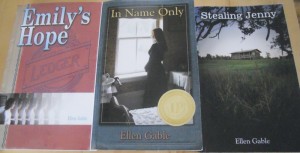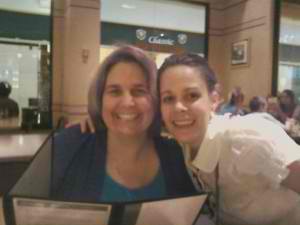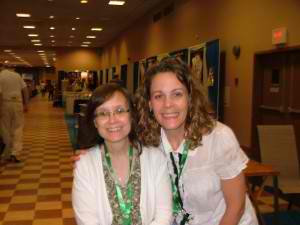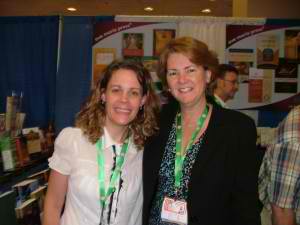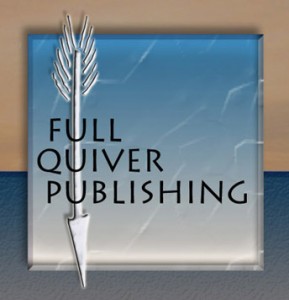Does Self-Publishing Mean Substandard?
So…is the ease of self-publishing bringing the overall quality of books down?
Well, in a word, I believe it is.
Unfortunately, many self-published authors think they can write a book without extensive editing. Others, who do have editors, don’t employ professionals, and instead use friends and relatives. Another self-published novelist I know used a published author as editor but this particular “published” author had no experience in fiction so this showed in the characters and plot. Still others publish their books with little or no proofreading.
Going with a “Self-Publishing” company like Trafford or iUniverse also doesn’t guarantee high quality. Large companies want your business and while they can be helpful, they are also more expensive than a self-publishing book coach.
In my capacity as a reviewer for CatholicFiction.net as well as a reviewer for other websites, many self-published manuscripts come across my desk (or computer) that are so atrociously written, I won’t even review them.
I’ve come up with a few ways to increase the likelihood that your self-published book will not be included in the “badly written” bunch.
Avoid Thinking “I Can Do It All”
I’ve won awards and have had bestselling books precisely because I realize that I can’t do it all. I hire editors, copy-editors, proofreaders and my husband (a professional artist) designs my covers.
Employ a Professional Editor (for overall plot, characters, setting, writing style) and humbly consider their advice. If you’re writing fiction, find a fiction editor. If you’re writing a non-fiction book, find one who specializes in non-fiction. Authors should want their work to be the best it can be. Sometimes a book has to go through many edits in order to be polished and of good quality. My first novel went through about 30 edits. My second and third novels, ten. Be open to construction criticism. Don’t we all want to produce quality books?
Use a Copy-editor (for grammar, word usage and punctuation)
One author I know used a friend as copy-editor. This person (I’m guessing) had little experience in professional copy-editing. That particular book was a great read, but had many comma, quote and apostrophe errors that made it distracting to read. When a reader gets distracted, they’re pulled from the story.
Proofreaders, Proofreaders, Proofreaders!!!
Ask at least 10 of your friends and relatives if they could read your manuscript and find typos. One novelist I know didn’t use any proofreaders (he said he proofread his book himself, which was a big mistake…authors can be blind to their own mistakes). Unfortunately, it showed. Another author used one proofreader, but one isn’t enough to read through 100,000 words and find all the typos. With my second novel, In Name Only, ten proofreaders went through the book and missed “Brtish.” I didn’t catch it until I converted my book to Kindle.
Employ a Professional Cover Designer
The book may be good, but if the cover looks like a five year old designed it or the font is too light to read, then people may not even consider buying your book. A good cover must also look eye- catching in thumbnail. Many of the self-published book covers I see on Kindle are not professionally designed. In fact, many look like a child designed them.
Research
If your book takes place 100 years ago, please do the research that is necessary. I once read a self-published novel that takes place in the 1870’s and the author included an automobile (those didn’t appear on the scene until 20 or 30 years later…).
Kindle Conversions
If you don’t know how to convert your manuscript to Kindle (or other ebooks), hire a professional. I can’t tell you how many books I’ve downloaded on Kindle that were virtually unreadable because of the poor conversion.
If You’re Going to Print…
If you’re printing your book, hire a Print on Demand (POD) Company who has extensive experience with printing books. A company that prints brochures, business cards and flyers may not be the best company to print your book. Create Space (Amazon’s POD Company) prints over 100,000 books per week and, for the most part, they know what they’re doing and their customer service team is extremely helpful.
Consider Using a Book Coach For a small fee, book coaches (like myself) walk the self-published author through the maze of self-publishing. As a book coach, I sometimes help with editing (although not always) and assist the self-published author in releasing a quality book. The book coach’s fees are usually much less than an author would pay for self-publishing companies.
Following all these hints will not guarantee that your book will be high quality, but it will certainly lessen the chances of it being “embarrassingly bad” or substandard. In the future, I hope to see more quality self-published books so we can remove the stigma and the frequent connection that self-published books equal substandard quality.
Have you self-published? If so, did you use a company, a book coach or did you do it yourself? Feel free to comment below.
Copyright 2012 Ellen Gable Hrkach

